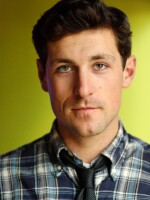http://stream.publicbroadcasting.net/production/mp3/wxxi/local-wxxi-952962.mp3
Going to the doctor can be hard enough as is. So imagine how difficult it would be if a visit to the doctor's office was as much about jumping language barriers as it was about receiving medical care.
That's the problem that a student-run program at the University of Rochester Medical Center (URMC) is trying to fix.
As part of the medical school's certificate program for students interested in serving Latino communities, future doctors are practicing mock patient visits entirely in Spanish.
If you wanted to get technical, you'd say what they're doing is "participating in a standardized patient program."
But, basically, what they're doing is kinda like that Seinfeld episode where Kramer and his friend Mickey act out illnesses for a bunch of med students.
"Something has to change"
But for Cesar Padilla, the third-year medical student organizing the program, the program is no joking matter.
"I saw this growing up," says Padilla. "My parents, my grandparents, they were not receiving appropriate medical care just because of their language. And I think that's something that has to change in the United States."
Padilla says the goal of the program is to help future doctors adapt to America's changing ethnic make-up. The way he sees it, care providers need to be better prepared to meet the demands of the nation's largest minority group.
Faculty adviser Dr. Joanne Wu, says the first - and often most important - step in achieving that goal, is making sure doctors and patients are communicating.
"[About] 90 percent of our diagnosis is really based upon what the patients tell us," says Wu. "The more the care provider is able to extract that information from them in a clear, concise, informative way, the better care we can give."
Padilla says URMC is one of only a handful of medical schools in the country that's working with students on their medical Spanish in a formal setting.
Students get a pass/fail grade on their mock patient visits, and ultimately the school's optional Latino Health Pathway leads to a certificate that students can point to as they head into residency programs.



